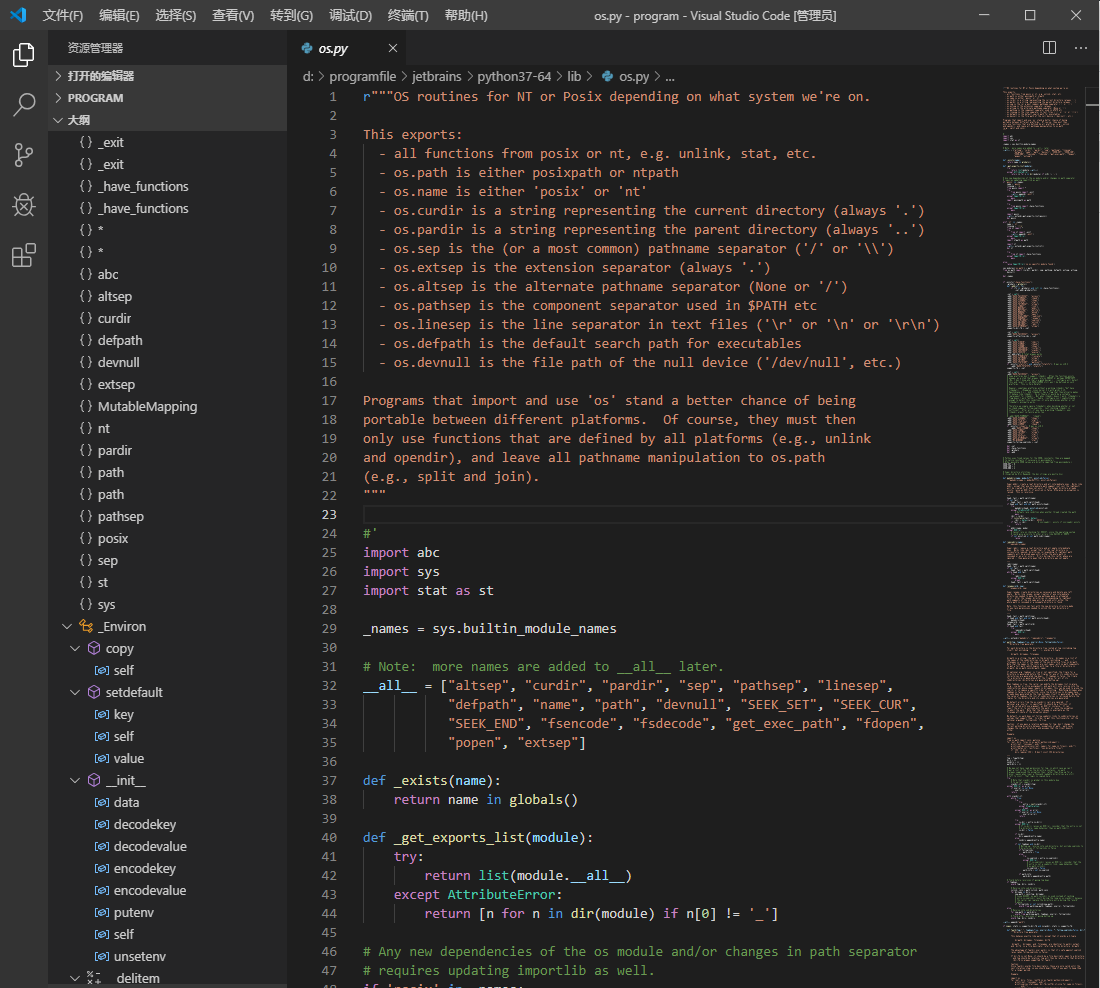
PythonRobotics
Python codes for robotics algorithm.
PaddlePaddle 提供了丰富的计算单元,使得用户可以采用模块化的方法解决各种学习问题。在此Repo中,我们展示了如何用 PaddlePaddle来解决常见的机器学习任务,提供若干种不同的易学易用的神经网络模型。PaddlePaddle用户可领取免费Tesla V100在线算力资源,高效训练模型,每日登陆即送12小时,连续五天运行再加送48小时,前往使用免费算力。
.. tip::
不要在行尾加分号, 也不要用分号将两条命令放在同一行.
.. _line_length:
.. tip::
每行不超过80个字符
例外:
#. 长的导入模块语句
#. 注释里的URL
不要使用反斜杠连接行.
Python会将 圆括号, 中括号和花括号中的行隐式的连接起来 <http://docs.python.org/2/reference/lexical_analysis.html#implicit-line-joining>_ , 你可以利用这个特点. 如果需要, 你可以在表达式外围增加一对额外的圆括号.
.. code-block:: python
Yes: foo_bar(self, width, height, color='black', design=None, x='foo',
emphasis=None, highlight=0)
if (width == 0 and height == 0 and
color == 'red' and emphasis == 'strong'): 如果一个文本字符串在一行放不下, 可以使用圆括号来实现隐式行连接:
.. code-block:: python
x = ('This will build a very long long '
'long long long long long long string')在注释中,如果必要,将长的URL放在一行上。
.. code-block:: python
Yes: # See details at
# http://www.example.com/us/developer/documentation/api/content/v2.0/csv_file_name_extension_full_specification.html.. code-block:: python
No: # See details at
# http://www.example.com/us/developer/documentation/api/content/\
# v2.0/csv_file_name_extension_full_specification.html 注意上面例子中的元素缩进; 你可以在本文的 :ref:缩进 <indentation> 部分找到解释.
.. tip::
宁缺毋滥的使用括号
除非是用于实现行连接, 否则不要在返回语句或条件语句中使用括号. 不过在元组两边使用括号是可以的.
.. code-block:: python
Yes: if foo:
bar()
while x:
x = bar()
if x and y:
bar()
if not x:
bar()
return foo
for (x, y) in dict.items(): ... .. code-block:: python
No: if (x):
bar()
if not(x):
bar()
return (foo).. _indentation:
.. tip::
用4个空格来缩进代码
绝对不要用tab, 也不要tab和空格混用. 对于行连接的情况, 你应该要么垂直对齐换行的元素(见 :ref:行长度 <line_length> 部分的示例), 或者使用4空格的悬挂式缩进(这时第一行不应该有参数):
.. code-block:: python
Yes: # Aligned with opening delimiter
foo = long_function_name(var_one, var_two,
var_three, var_four)
# Aligned with opening delimiter in a dictionary
foo = {
long_dictionary_key: value1 +
value2,
...
}
# 4-space hanging indent; nothing on first line
foo = long_function_name(
var_one, var_two, var_three,
var_four)
# 4-space hanging indent in a dictionary
foo = {
long_dictionary_key:
long_dictionary_value,
...
}.. code-block:: python
No: # Stuff on first line forbidden
foo = long_function_name(var_one, var_two,
var_three, var_four)
# 2-space hanging indent forbidden
foo = long_function_name(
var_one, var_two, var_three,
var_four)
# No hanging indent in a dictionary
foo = {
long_dictionary_key:
long_dictionary_value,
...
}.. tip::
顶级定义之间空两行, 方法定义之间空一行
顶级定义之间空两行, 比如函数或者类定义. 方法定义, 类定义与第一个方法之间, 都应该空一行. 函数或方法中, 某些地方要是你觉得合适, 就空一行.
.. tip::
按照标准的排版规范来使用标点两边的空格
括号内不要有空格.
.. code-block:: python
Yes: spam(ham[1], {eggs: 2}, []).. code-block:: python
No: spam( ham[ 1 ], { eggs: 2 }, [ ] )不要在逗号, 分号, 冒号前面加空格, 但应该在它们后面加(除了在行尾).
.. code-block:: python
Yes: if x == 4:
print x, y
x, y = y, x.. code-block:: python
No: if x == 4 :
print x , y
x , y = y , x参数列表, 索引或切片的左括号前不应加空格.
.. code-block:: python
Yes: spam(1).. code-block:: python
no: spam (1).. code-block:: python
Yes: dict['key'] = list[index].. code-block:: python
No: dict ['key'] = list [index] 在二元操作符两边都加上一个空格, 比如赋值(=), 比较(==, <, >, !=, <>, <=, >=, in, not in, is, is not), 布尔(and, or, not). 至于算术操作符两边的空格该如何使用, 需要你自己好好判断. 不过两侧务必要保持一致.
.. code-block:: python
Yes: x == 1.. code-block:: python
No: x<1当’=’用于指示关键字参数或默认参数值时, 不要在其两侧使用空格.
.. code-block:: python
Yes: def complex(real, imag=0.0): return magic(r=real, i=imag).. code-block:: python
No: def complex(real, imag = 0.0): return magic(r = real, i = imag)不要用空格来垂直对齐多行间的标记, 因为这会成为维护的负担(适用于:, #, =等):
.. code-block:: python
Yes:
foo = 1000 # comment
long_name = 2 # comment that should not be aligned
dictionary = {
"foo": 1,
"long_name": 2,
}.. code-block:: python
No:
foo = 1000 # comment
long_name = 2 # comment that should not be aligned
dictionary = {
"foo" : 1,
"long_name": 2,
}.. tip::
大部分.py文件不必以#!作为文件的开始. 根据 PEP-394 <http://www.python.org/dev/peps/pep-0394/>_ , 程序的main文件应该以 #!/usr/bin/python2或者 #!/usr/bin/python3开始.
(译者注: 在计算机科学中, Shebang <http://en.wikipedia.org/wiki/Shebang_(Unix)>_ (也称为Hashbang)是一个由井号和叹号构成的字符串行(#!), 其出现在文本文件的第一行的前两个字符. 在文件中存在Shebang的情况下, 类Unix操作系统的程序载入器会分析Shebang后的内容, 将这些内容作为解释器指令, 并调用该指令, 并将载有Shebang的文件路径作为该解释器的参数. 例如, 以指令#!/bin/sh开头的文件在执行时会实际调用/bin/sh程序.)
#!先用于帮助内核找到Python解释器, 但是在导入模块时, 将会被忽略. 因此只有被直接执行的文件中才有必要加入#!.
.. _comments:
.. tip::
确保对模块, 函数, 方法和行内注释使用正确的风格
文档字符串
Python有一种独一无二的的注释方式: 使用文档字符串. 文档字符串是包, 模块, 类或函数里的第一个语句. 这些字符串可以通过对象的__doc__成员被自动提取, 并且被pydoc所用. (你可以在你的模块上运行pydoc试一把, 看看它长什么样). 我们对文档字符串的惯例是使用三重双引号"""( `PEP-257 <http://www.python.org/dev/peps/pep-0257/>`_ ). 一个文档字符串应该这样组织: 首先是一行以句号, 问号或惊叹号结尾的概述(或者该文档字符串单纯只有一行). 接着是一个空行. 接着是文档字符串剩下的部分, 它应该与文档字符串的第一行的第一个引号对齐. 下面有更多文档字符串的格式化规范. 模块
每个文件应该包含一个许可样板. 根据项目使用的许可(例如, Apache 2.0, BSD, LGPL, GPL), 选择合适的样板.函数和方法
下文所指的函数,包括函数, 方法, 以及生成器.
一个函数必须要有文档字符串, 除非它满足以下条件:
#. 外部不可见
#. 非常短小
#. 简单明了
文档字符串应该包含函数做什么, 以及输入和输出的详细描述. 通常, 不应该描述"怎么做", 除非是一些复杂的算法. 文档字符串应该提供足够的信息, 当别人编写代码调用该函数时, 他不需要看一行代码, 只要看文档字符串就可以了. 对于复杂的代码, 在代码旁边加注释会比使用文档字符串更有意义.
关于函数的几个方面应该在特定的小节中进行描述记录, 这几个方面如下文所述. 每节应该以一个标题行开始. 标题行以冒号结尾. 除标题行外, 节的其他内容应被缩进2个空格.
Args:
列出每个参数的名字, 并在名字后使用一个冒号和一个空格, 分隔对该参数的描述.如果描述太长超过了单行80字符,使用2或者4个空格的悬挂缩进(与文件其他部分保持一致).
描述应该包括所需的类型和含义.
如果一个函数接受*foo(可变长度参数列表)或者**bar (任意关键字参数), 应该详细列出*foo和**bar.
Returns: (或者 Yields: 用于生成器)
描述返回值的类型和语义. 如果函数返回None, 这一部分可以省略.
Raises:
列出与接口有关的所有异常.
.. code-block:: python
def fetch_bigtable_rows(big_table, keys, other_silly_variable=None):
"""Fetches rows from a Bigtable.
Retrieves rows pertaining to the given keys from the Table instance
represented by big_table. Silly things may happen if
other_silly_variable is not None.
Args:
big_table: An open Bigtable Table instance.
keys: A sequence of strings representing the key of each table row
to fetch.
other_silly_variable: Another optional variable, that has a much
longer name than the other args, and which does nothing.
Returns:
A dict mapping keys to the corresponding table row data
fetched. Each row is represented as a tuple of strings. For
example:
{'Serak': ('Rigel VII', 'Preparer'),
'Zim': ('Irk', 'Invader'),
'Lrrr': ('Omicron Persei 8', 'Emperor')}
If a key from the keys argument is missing from the dictionary,
then that row was not found in the table.
Raises:
IOError: An error occurred accessing the bigtable.Table object.
"""
pass类
类应该在其定义下有一个用于描述该类的文档字符串. 如果你的类有公共属性(Attributes), 那么文档中应该有一个属性(Attributes)段. 并且应该遵守和函数参数相同的格式.
.. code-block:: python
class SampleClass(object):
"""Summary of class here.
Longer class information....
Longer class information....
Attributes:
likes_spam: A boolean indicating if we like SPAM or not.
eggs: An integer count of the eggs we have laid.
"""
def __init__(self, likes_spam=False):
"""Inits SampleClass with blah."""
self.likes_spam = likes_spam
self.eggs = 0
def public_method(self):
"""Performs operation blah."""块注释和行注释
最需要写注释的是代码中那些技巧性的部分. 如果你在下次 `代码审查 <http://en.wikipedia.org/wiki/Code_review>`_ 的时候必须解释一下, 那么你应该现在就给它写注释. 对于复杂的操作, 应该在其操作开始前写上若干行注释. 对于不是一目了然的代码, 应在其行尾添加注释.
.. code-block:: python
# We use a weighted dictionary search to find out where i is in
# the array. We extrapolate position based on the largest num
# in the array and the array size and then do binary search to
# get the exact number.
if i & (i-1) == 0: # True if i is 0 or a power of 2.
为了提高可读性, 注释应该至少离开代码2个空格.
另一方面, 绝不要描述代码. 假设阅读代码的人比你更懂Python, 他只是不知道你的代码要做什么.
.. code-block:: python
# BAD COMMENT: Now go through the b array and make sure whenever i occurs
# the next element is i+1.. tip::
如果一个类不继承自其它类, 就显式的从object继承. 嵌套类也一样.
.. code-block:: python
Yes: class SampleClass(object):
pass
class OuterClass(object):
class InnerClass(object):
pass
class ChildClass(ParentClass):
"""Explicitly inherits from another class already.""".. code-block:: python
No: class SampleClass:
pass
class OuterClass:
class InnerClass:
pass继承自 object 是为了使属性(properties)正常工作, 并且这样可以保护你的代码, 使其不受 PEP-3000 <http://www.python.org/dev/peps/pep-3000/>_ 的一个特殊的潜在不兼容性影响. 这样做也定义了一些特殊的方法, 这些方法实现了对象的默认语义, 包括 __new__, __init__, __delattr__, __getattribute__, __setattr__, __hash__, __repr__, and __str__ .
.. tip::
即使参数都是字符串, 使用%操作符或者格式化方法格式化字符串. 不过也不能一概而论, 你需要在+和%之间好好判定.
.. code-block:: python
Yes: x = a + b
x = '%s, %s!' % (imperative, expletive)
x = '{}, {}!'.format(imperative, expletive)
x = 'name: %s; score: %d' % (name, n)
x = 'name: {}; score: {}'.format(name, n).. code-block:: python
No: x = '%s%s' % (a, b) # use + in this case
x = '{}{}'.format(a, b) # use + in this case
x = imperative + ', ' + expletive + '!'
x = 'name: ' + name + '; score: ' + str(n)避免在循环中用+和+=操作符来累加字符串. 由于字符串是不可变的, 这样做会创建不必要的临时对象, 并且导致二次方而不是线性的运行时间. 作为替代方案, 你可以将每个子串加入列表, 然后在循环结束后用 .join 连接列表. (也可以将每个子串写入一个 cStringIO.StringIO 缓存中.)
.. code-block:: python
Yes: items = ['<table>']
for last_name, first_name in employee_list:
items.append('<tr><td>%s, %s</td></tr>' % (last_name, first_name))
items.append('</table>')
employee_table = ''.join(items).. code-block:: python
No: employee_table = '<table>'
for last_name, first_name in employee_list:
employee_table += '<tr><td>%s, %s</td></tr>' % (last_name, first_name)
employee_table += '</table>'在同一个文件中, 保持使用字符串引号的一致性. 使用单引号’或者双引号”之一用以引用字符串, 并在同一文件中沿用. 在字符串内可以使用另外一种引号, 以避免在字符串中使用. GPyLint已经加入了这一检查.
(译者注:GPyLint疑为笔误, 应为PyLint.)
.. code-block:: python
Yes:
Python(‘Why are you hiding your eyes?’)
Gollum(“I’m scared of lint errors.”)
Narrator(‘“Good!” thought a happy Python reviewer.’)
.. code-block:: python
No:
Python(“Why are you hiding your eyes?”)
Gollum(‘The lint. It burns. It burns us.’)
Gollum(“Always the great lint. Watching. Watching.”)
为多行字符串使用三重双引号”””而非三重单引号’’’. 当且仅当项目中使用单引号’来引用字符串时, 才可能会使用三重’’’为非文档字符串的多行字符串来标识引用. 文档字符串必须使用三重双引号”””. 不过要注意, 通常用隐式行连接更清晰, 因为多行字符串与程序其他部分的缩进方式不一致.
.. code-block:: python
Yes:
print ("This is much nicer.\n"
"Do it this way.\n").. code-block:: python
No:
print """This is pretty ugly.
Don't do this.
""".. tip::
在文件和sockets结束时, 显式的关闭它.
除文件外, sockets或其他类似文件的对象在没有必要的情况下打开, 会有许多副作用, 例如:
#. 它们可能会消耗有限的系统资源, 如文件描述符. 如果这些资源在使用后没有及时归还系统, 那么用于处理这些对象的代码会将资源消耗殆尽.
#. 持有文件将会阻止对于文件的其他诸如移动、删除之类的操作.
#. 仅仅是从逻辑上关闭文件和sockets, 那么它们仍然可能会被其共享的程序在无意中进行读或者写操作. 只有当它们真正被关闭后, 对于它们尝试进行读或者写操作将会抛出异常, 并使得问题快速显现出来.
而且, 幻想当文件对象析构时, 文件和sockets会自动关闭, 试图将文件对象的生命周期和文件的状态绑定在一起的想法, 都是不现实的. 因为有如下原因:
#. 没有任何方法可以确保运行环境会真正的执行文件的析构. 不同的Python实现采用不同的内存管理技术, 比如延时垃圾处理机制. 延时垃圾处理机制可能会导致对象生命周期被任意无限制的延长.
#. 对于文件意外的引用,会导致对于文件的持有时间超出预期(比如对于异常的跟踪, 包含有全局变量等).
推荐使用 "with"语句 <http://docs.python.org/reference/compound_stmts.html#the-with-statement>_ 以管理文件:
.. code-block:: python
with open("hello.txt") as hello_file:
for line in hello_file:
print line对于不支持使用”with”语句的类似文件的对象,使用 contextlib.closing():
.. code-block:: python
import contextlib
with contextlib.closing(urllib.urlopen("http://www.python.org/")) as front_page:
for line in front_page:
print lineLegacy AppEngine 中Python 2.5的代码如使用”with”语句, 需要添加 “from future import with_statement”.
.. tip::
为临时代码使用TODO注释, 它是一种短期解决方案. 不算完美, 但够好了.
TODO注释应该在所有开头处包含”TODO”字符串, 紧跟着是用括号括起来的你的名字, email地址或其它标识符. 然后是一个可选的冒号. 接着必须有一行注释, 解释要做什么. 主要目的是为了有一个统一的TODO格式, 这样添加注释的人就可以搜索到(并可以按需提供更多细节). 写了TODO注释并不保证写的人会亲自解决问题. 当你写了一个TODO, 请注上你的名字.
.. code-block:: python
# TODO(kl@gmail.com): Use a "*" here for string repetition.
# TODO(Zeke) Change this to use relations.如果你的TODO是”将来做某事”的形式, 那么请确保你包含了一个指定的日期(“2009年11月解决”)或者一个特定的事件(“等到所有的客户都可以处理XML请求就移除这些代码”).
.. tip::
每个导入应该独占一行
.. code-block:: python
Yes: import os
import sys.. code-block:: python
No: import os, sys导入总应该放在文件顶部, 位于模块注释和文档字符串之后, 模块全局变量和常量之前. 导入应该按照从最通用到最不通用的顺序分组:
#. 标准库导入
#. 第三方库导入
#. 应用程序指定导入
每种分组中, 应该根据每个模块的完整包路径按字典序排序, 忽略大小写.
.. code-block:: python
import foo
from foo import bar
from foo.bar import baz
from foo.bar import Quux
from Foob import ar.. tip::
通常每个语句应该独占一行
不过, 如果测试结果与测试语句在一行放得下, 你也可以将它们放在同一行. 如果是if语句, 只有在没有else时才能这样做. 特别地, 绝不要对 try/except 这样做, 因为try和except不能放在同一行.
.. code-block:: python
Yes:
if foo: bar(foo).. code-block:: python
No:
if foo: bar(foo)
else: baz(foo)
try: bar(foo)
except ValueError: baz(foo)
try:
bar(foo)
except ValueError: baz(foo).. tip::
在Python中, 对于琐碎又不太重要的访问函数, 你应该直接使用公有变量来取代它们, 这样可以避免额外的函数调用开销. 当添加更多功能时, 你可以用属性(property)来保持语法的一致性.
(译者注: 重视封装的面向对象程序员看到这个可能会很反感, 因为他们一直被教育: 所有成员变量都必须是私有的! 其实, 那真的是有点麻烦啊. 试着去接受Pythonic哲学吧)另一方面, 如果访问更复杂, 或者变量的访问开销很显著, 那么你应该使用像 get_foo() 和 set_foo() 这样的函数调用. 如果之前的代码行为允许通过属性(property)访问 , 那么就不要将新的访问函数与属性绑定. 这样, 任何试图通过老方法访问变量的代码就没法运行, 使用者也就会意识到复杂性发生了变化.
.. tip::
module_name, package_name, ClassName, method_name, ExceptionName, function_name, GLOBAL_VAR_NAME, instance_var_name, function_parameter_name, local_var_name.
应该避免的名称
#. 单字符名称, 除了计数器和迭代器.
#. 包/模块名中的连字符(-)
#. 双下划线开头并结尾的名称(Python保留, 例如__init__)命名约定
#. 所谓"内部(Internal)"表示仅模块内可用, 或者, 在类内是保护或私有的.
#. 用单下划线(_)开头表示模块变量或函数是protected的(使用from module import \*时不会包含).
#. 用双下划线(__)开头的实例变量或方法表示类内私有.
#. 将相关的类和顶级函数放在同一个模块里. 不像Java, 没必要限制一个类一个模块.
#. 对类名使用大写字母开头的单词(如CapWords, 即Pascal风格), 但是模块名应该用小写加下划线的方式(如lower_with_under.py). 尽管已经有很多现存的模块使用类似于CapWords.py这样的命名, 但现在已经不鼓励这样做, 因为如果模块名碰巧和类名一致, 这会让人困扰. Python之父Guido推荐的规范
=========================== ==================== ======================================================================
Type Public Internal
=========================== ==================== ======================================================================
Modules lower_with_under _lower_with_under
Packages lower_with_under
Classes CapWords _CapWords
Exceptions CapWords
Functions lower_with_under() _lower_with_under()
Global/Class Constants CAPS_WITH_UNDER _CAPS_WITH_UNDER
Global/Class Variables lower_with_under _lower_with_under
Instance Variables lower_with_under _lower_with_under (protected) or __lower_with_under (private)
Method Names lower_with_under() _lower_with_under() (protected) or __lower_with_under() (private)
Function/Method Parameters lower_with_under
Local Variables lower_with_under
=========================== ==================== ======================================================================
.. _main:
.. tip::
即使是一个打算被用作脚本的文件, 也应该是可导入的. 并且简单的导入不应该导致这个脚本的主功能(main functionality)被执行, 这是一种副作用. 主功能应该放在一个main()函数中.
在Python中, pydoc以及单元测试要求模块必须是可导入的. 你的代码应该在执行主程序前总是检查 if __name__ == '__main__' , 这样当模块被导入时主程序就不会被执行.
.. code-block:: python
def main():
...
if __name__ == '__main__':
main()所有的顶级代码在模块导入时都会被执行. 要小心不要去调用函数, 创建对象, 或者执行那些不应该在使用pydoc时执行的操作.

1 | r"""OS routines for NT or Posix depending on what system we're on. |
Update your browser to view this website correctly. Update my browser now